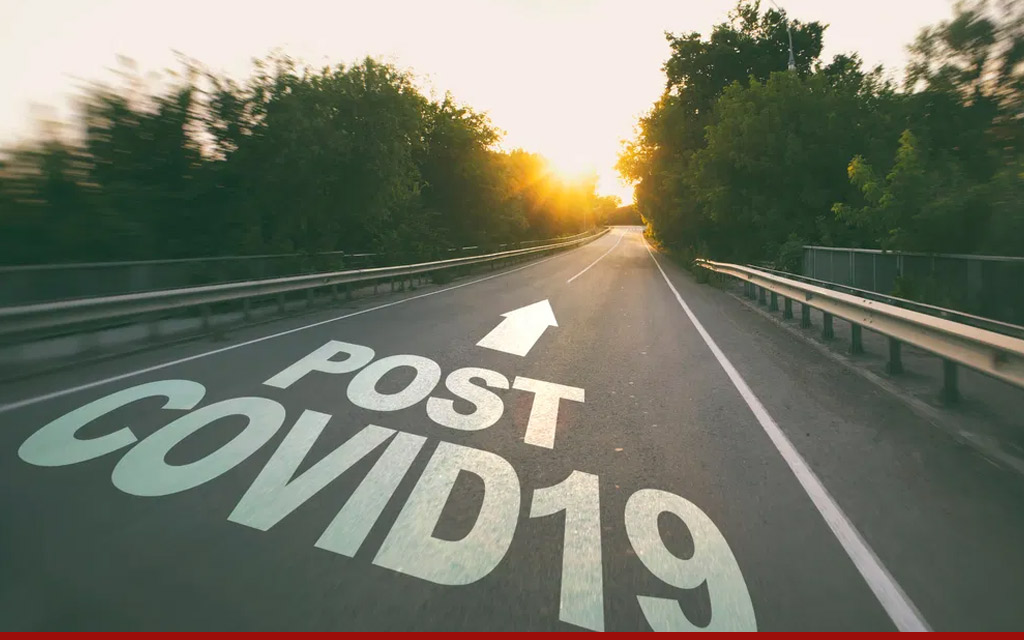Here are a few areas that offer, I hope, forget-me-not lessons. What about you?
Climate Change
Climate change has been linked to introduction of new types of zoonotic (animal born) viruses. An entire body of literature corroborates theories about how climate change creates conditions favorable to pandemics — extreme weather and changes in animal migratory routes being two of them.
At the same time, pandemics give Mother Nature a much needed reset. During the Black Death pandemic (1349-1353) scientists have found that lead levels in the atmosphere dropped to basically zero. Seven centuries later, our worldwide pandemic pause saw a global reduction in pollution, especially in pollutants caused by the burning of fossil fuels. As commuter traffic decreased so did carbon dioxide and nitrogen dioxide emissions. Air quality improved, sunsets appeared as smog disappeared. Validation from scientific organizations proves the point. Now that we can see that our behavior can dramatically reduce atmospheric pollution, do we have the collective wherewithal to sustain the positive outcomes we saw?
Education
Academic institutions have dragged their heels over adopting edtech for decades. As just about all learning went remote, academic institutions got past dragging, and moved into kicking and screaming. (The US census reports 93% of U.S. households with school-aged children moved to some form of online learning.) Scott Galloway, a noted business professor, suggests the pandemic greased the wheels for big tech to step in and offer compelling alternatives to $50K/yr in-person college educations. Coursera, a well-known MOOC (Massively Open Online Course) provider, is now set to go public. Global Silicon Ventures (GSV) raised $225 million to invest in edtech in a “blank check” IPO or SPAC in January. The Indian edtech giant Byju raised over a billion dollars last year and is now valued at $15 billion. MasterClass, Skillshare, Canvas, and their ilk, long thought to be educational supplements, quickly moved to the core of educational offerings. A few of the factors tilting the scale towards mass adoption of remote learning are cloud-based delivery systems, AI that’s used to determine a personalized path forward, and the ability to attract great teachers to such systems and make them accessible to large numbers of students irrespective of geography or wealth. Grow with Google, which started as an internal up-skilling tool, has turned into a widely-used free path to a good job. The pandemic made online learning a familiar companion, one that we’re not likely to put back into Pandora’s box. (For more on pandemic-inspired edtech, see this column I wrote in February.)
Contingency Planning: No Longer a Forgotten Art
If nothing else we learned the hard way that all plans need a contingency plan. This is why every business is now putting a new priority on “resilience.” How to get business done without face-to-face meetings, how to get work done without an office — we improvised and demonstrated remarkable agility in the past year. We strategized everything from trips to the grocery store to doctor’s appointments. We invented new rituals from dating to death. We learned how to plan and question life’s certainties.The back-up plan should always be firmly planted in our back pockets as we emerge.
New Medias Don’t Usurp, They Augment
What a year for media disruption! We moved to the world of virtual events with hundreds of new platforms such as Hublio, Brella, and HopIn. We’ve seen cord-cutting services like Disney+, Paramount+ and the other +s abscond with 6 million pay TV viewers. The world of traditional media publishing has been upended by upstarts like Patreon and Substack where individuals with celebrity cred are their own outlets. And new forms of engagement using old-fashioned interfaces like voice led to the Clubhouse juggernaut. (I wrote a column about that, too.) Like radio, TV and newspapers before them, the best of breed and most nimble of traditional media will survive, just with more competition for viewer’s time.
Cleanliness works
Remember pre-pandemic how workers and students were all too often encouraged to “show up,” despite feeling a bit under the weather? Now it’s’ well documented that the world experienced an unusually mild flu season this winter. Turns out that the same mitigation measures used to contain COVID-19, such as physical distancing and mask wearing, along with keeping infected people out schools and workplaces, work pretty well. The hygiene hypothesis, which argues that too much cleanliness can reduce the body’s ability to fight disease, made its rounds during the pandemic, even going so far as to say that too much handwashing can hurt us. But such theories have been largely debunked by the scientific community. Looking to the future, can we make staying home when feeling sick a part of our behavior?
Governments Work
Treatises could be written on this but the bottom line is evident. The pandemic showed us that government works when it has the trust of its constituents. Jacinda Ardern, New Zealand’s amazing Prime Minister, called her country’s early plan Go early, go hard. Taiwan and Singapore also enacted swift shutdowns and implemented contact tracing to successfully contain the virus. These countries took swift, decisive political action and it paid off.
In the U.S., after a year of magical thinking that the virus would disappear and more than our share of sorrows and preventable deaths, a more operationally focused government finally took proactive nationwide steps to manage vaccine acquisition and distribution along with economic stimulus relief. It’s becoming evident once again that the role of government is to maintain social order, provide public services and defend us. So pandemic memory may craft a renewed vision for the place of government. That’s the assumption implicit in President Biden’s mammoth spending proposals.
The list is limitless. The rise of telemedicine (a column), contactless payments, and the emergence of cryptocurrency as a legitimate form of tender (column) are high on my lessons-learned list.
Great crises are often followed by periods of great innovation, but only if we internalize their lessons.
Source: https://techonomy.com/2021/04/lessons-learned-or-post-covid-amnesia/




